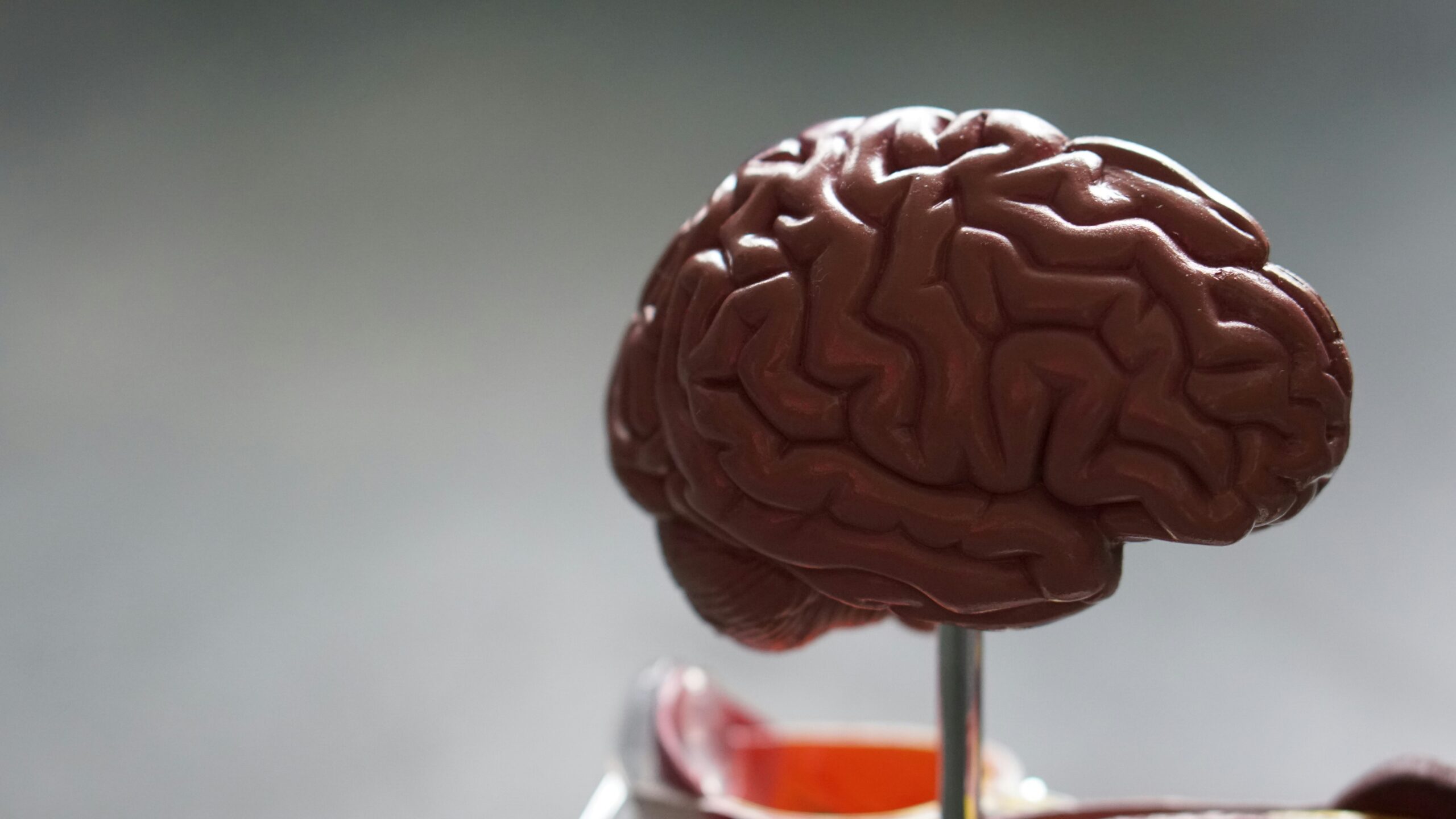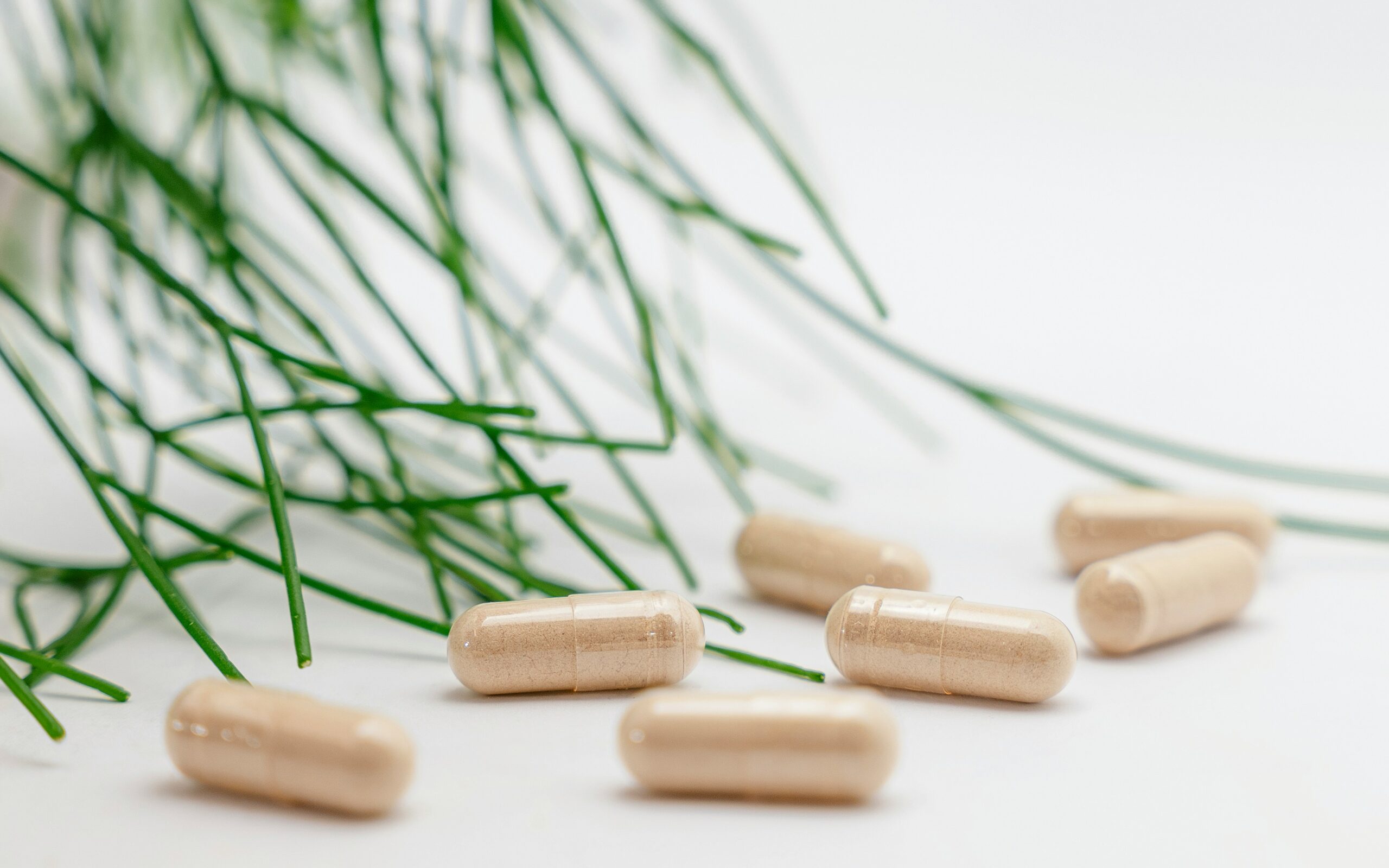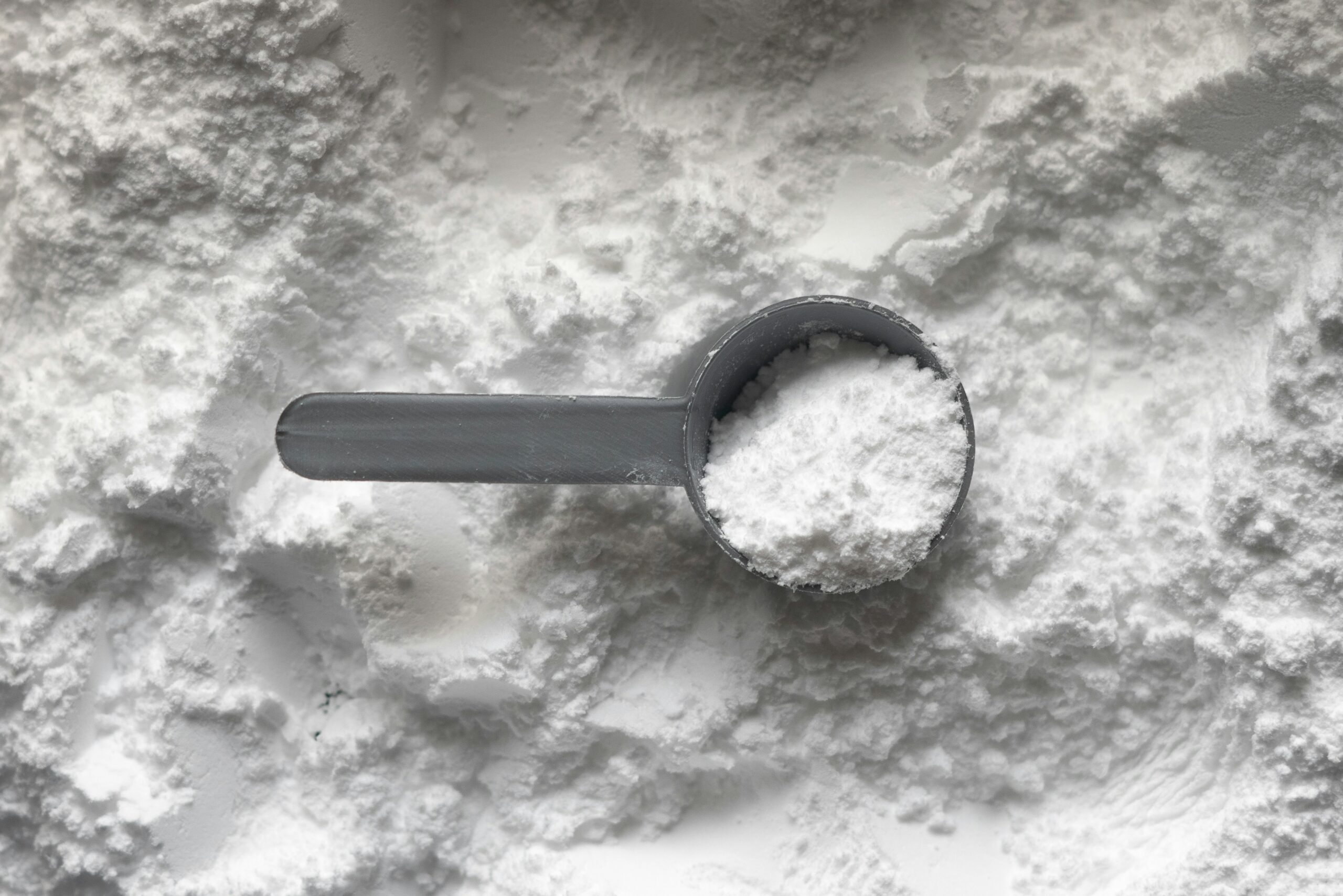Taurine is a naturally occurring amino acid, not a protein building block. Through synthesis, taurine is found in the human body in small amounts. This component mainly concerns skeletal muscle, the eye, the brain, and the heart. However, the body cannot produce sufficient quantities of the taurine needed for health, so food or dietary supplements can also supply the element. In food, we can find this amino acid mainly in animal products. However, vegan sources of taurine are also available.
The substance has many health benefits, so the popularity of taurine products has increased in recent years. Its properties are precious for athletes and physically active people. The amino acid can affect many diseases and is often used for therapeutic purposes. A taurine deficiency can have adverse health effects, but an excess is also not recommended. Taurine is generally considered safe for the human body but is worth following dosage rules. In some cases, an excess of taurine can cause unpleasant side effects. Learn more about taurine and its impact on the human body.
Taurine was first extracted from the ox, which is why its name is associated with this animal. The substance is also known as tauric acid![]() . Scientists studying the taurine content of various tissues in the human body have analyzed its role in health. Thyroid functions mainly concern the skeletal muscles, retina, central nervous, and cardiovascular systems. Through many studies, specialists have discovered that taurine can protect against certain diseases and improve the body's functioning in various ways.
. Scientists studying the taurine content of various tissues in the human body have analyzed its role in health. Thyroid functions mainly concern the skeletal muscles, retina, central nervous, and cardiovascular systems. Through many studies, specialists have discovered that taurine can protect against certain diseases and improve the body's functioning in various ways.

One of taurine's many mechanisms is its antioxidant activity. The antioxidant actions of this amino acid are based on protecting cells from oxidative stress by scavenging free radicals. Taurine intake, therefore, affects the aging process![]() . In addition, taurine is involved in the transport of creatine, which protects muscle cells from oxidative stress.
. In addition, taurine is involved in the transport of creatine, which protects muscle cells from oxidative stress.
Taurine also has anti-inflammatory properties. Through its antioxidant and anti-inflammatory effects, taurine helps to protect cells and tissues from damage. Adequate taurine is used to treat, among other things, acute inflammation caused by various causes. The substance is used to treat conjunctivitis or muscle and joint inflammation![]() .
.
An important role of the described amino acid is modulating fat metabolism![]() . Taurine influences the body's energy balance, regulating important vital functions. Among other things, the substance lowers glucose, insulin, and triglyceride levels. Therefore, taurine can be an important element for people with diabetes
. Taurine influences the body's energy balance, regulating important vital functions. Among other things, the substance lowers glucose, insulin, and triglyceride levels. Therefore, taurine can be an important element for people with diabetes![]() and obesity
and obesity![]() . In addition, the amino acid supports faster fat loss by improving heart function.
. In addition, the amino acid supports faster fat loss by improving heart function.
Taurine affects brain areas such as the cerebral cortex, hippocampus, or hypothalamus. The substance plays a vital role in neurotransmission and neuromodulation, thus protecting against neurodegenerative diseases and brain injury. Some studies suggest that taurine may act as a neurotransmitter, influencing cognition and other brain functions. Taurine regulates vital functions and affects the overall functioning of the body. Taurine deficiencies can occur in people with psychiatric disorders, where taurine intake can help alleviate symptoms. Taurine may, therefore, have a preventive effect against diseases such as stroke![]() , Alzheimer's
, Alzheimer's![]() , Parkinson's
, Parkinson's![]() , epilepsy
, epilepsy![]() , and retinal degeneration
, and retinal degeneration![]() .
.

Taurine also regulates the osmotic pressure of body fluids. On a cellular level, taurine is involved in several biochemical processes. Osmoregulation is the active process of maintaining a relatively constant equilibrium of the volume of body fluids and the concentrations of electrolytes and compounds in them. Osmoregulation depends on water and food intake, as well as excretion mechanisms. Taurine participates in the osmoregulation process, helping maintain the human body's homeostasis.
Taurine affects various cells in the body, increasing their survival and regenerative capacities. Therefore, taurine may be beneficial in treating neuronal cells and cells involved in developing skeletal muscle, bone, and cartilage. Taurine transports nitrogen, which is needed to rebuild damaged tissues. As a result, the tissues reconstruct themselves and do not need to take amino acids from muscle proteins. The result of all these properties of taurine is easier muscle recovery after training and the growth of muscle tissue.
Taurine primarily has a protective function for various areas of the body. Among other things, the amino acid protects the liver from damage, particularly affecting fibrosis in this organ. Liver fibrosis involves the replacement of healthy liver tissue with fibrous tissue in response to processes that damage liver tissue. In addition, taurine has neuroprotective![]() and cardioprotective
and cardioprotective![]() effects. Taurine is necessary for the normal function of the heart and circulatory system, as it improves the contractility of the heart muscle and helps regulate blood pressure and heart rhythm. Taurine also protects the retina cells from damage caused by oxidants and bright light.
effects. Taurine is necessary for the normal function of the heart and circulatory system, as it improves the contractility of the heart muscle and helps regulate blood pressure and heart rhythm. Taurine also protects the retina cells from damage caused by oxidants and bright light.
Taurine can be supplied to the body in food or dietary supplements. This amino acid can be found in many nutritional products. Above all, the substance is a component of meat and fish products. Most taurine is found in turkey meat, pork, beef and lamb, fish, and seafood. In addition, taurine can also be found in dairy and plant-based products so that vegans can add this ingredient to their diet. However, it is noted that vegetarians and vegans may have lower levels of taurine drawn from their diet due to restrictions.
Taurine is also often added to energy drinks to reduce the side effects of large doses of caffeine. Pure taurine is most commonly found in capsule form as a dietary supplement. It can also be a supplemental ingredient in creatine supplements and vitamin preparations.

Studies show that taurine levels in the body can decrease with age. Therefore, many should supply taurine externally through an established diet or supplements. Sufficient amounts of taurine can protect against various health problems from taurine deficiencies. Although there are no reference recommendations for taurine intake, staying within large doses is a good idea, especially with supplementation. If you want to supplement taurine, it is best to consult your doctor first and follow the recommendations of the professionals.
When it comes to dosage, the amount of taurine may depend on the form of the supplement. Supplements are available with a taurine amount of 500 – 2000 mg![]() per serving. The appropriate dose for an individual can depend on several factors, such as weight, age, and general health. According to risk assessment studies based on toxicological aspects, the upper supplementation level is a maximum of 3 g
per serving. The appropriate dose for an individual can depend on several factors, such as weight, age, and general health. According to risk assessment studies based on toxicological aspects, the upper supplementation level is a maximum of 3 g![]() taurine per day. This is considerably more than the value of taurine provided from an average diet, so it is recommended not to exceed this limit, as side effects of overdosing may occur.
taurine per day. This is considerably more than the value of taurine provided from an average diet, so it is recommended not to exceed this limit, as side effects of overdosing may occur.
On the other hand, a Western diet rich in meat products is believed to provide sufficient amounts of taurine. The average dietary intake of taurine is estimated at 40 – 400 mg![]() per day for an adult. However, people following more restrictive diets, such as vegans, may experience taurine deficiencies. In such cases, supplementation may be required.
per day for an adult. However, people following more restrictive diets, such as vegans, may experience taurine deficiencies. In such cases, supplementation may be required.

In general, taurine is considered a safe substance. It is well tolerated in most people and, even in higher doses, should not cause any problems or symptoms. When taurine is supplied with the diet, i.e., in moderate amounts, it poses no risk. However, a significant excess of the taurine provided can be harmful. Side effects of taurine overdose include:
Exceeding the recommended guidelines for daily taurine doses can cause several gastrointestinal complaints. These include side effects such as nausea![]() leading to vomiting
leading to vomiting![]() and possible diarrhea
and possible diarrhea![]() . These types of symptoms are common with overdoses of various substances. It is the body's natural reaction to eliminate excess of a substance it considers toxic.
. These types of symptoms are common with overdoses of various substances. It is the body's natural reaction to eliminate excess of a substance it considers toxic.
Excess taurine can also cause psychological symptoms related to neurological agitation. Such side effects include trembling![]() in various body parts, dizziness
in various body parts, dizziness![]() , and headaches
, and headaches![]() . Taurine stimulates the central nervous system, and an excess of the substance can cause multiple neurological symptoms.
. Taurine stimulates the central nervous system, and an excess of the substance can cause multiple neurological symptoms.

Healthy people with no serious problems should have no problems tolerating taurine if they use it in moderate amounts. However, in addition to adhering to the dosage, it is also important to watch out for possible interactions of taurine with different substances, such as drugs and supplements. For some groups, taking taurine can also be risky, and there are contraindications for this.
Careless combining medicines with various substances can be dangerous. Taurine, for example, should not be combined with blood pressure-lowering drugs. In such situations, taking taurine lowers blood pressure, which may increase the risk of hypotension in patients taking hypotensive drugs.
In addition, taurine should not be combined with medications used for heart disease. Drugs that modulate heart function may react with taurine, which also strongly affects this organ. Also, drugs affecting the central nervous system should not be combined with taurine, as this area is also highly related to the properties of this amino acid.
Pregnant women and breastfeeding women should consult their doctor before deciding on taurine supplementation. Pregnancy is a specific time during which great care must be taken when consuming various new substances. Research suggests that taurine may affect fetal development, but little is known about the safety of taurine in pregnancy and during breastfeeding, so it is advisable not to take risks during such a critical period.

People who suffer from certain diseases should also be cautious about taking taurine. Such illnesses include, among others, bipolar affective disorder![]() . Bipolar affective disorder is a specific type of illness associated with mood changes. There is speculation that taurine, which stimulates the nervous system, may exacerbate the symptoms of this disorder.
. Bipolar affective disorder is a specific type of illness associated with mood changes. There is speculation that taurine, which stimulates the nervous system, may exacerbate the symptoms of this disorder.
In addition to this, epilepsy![]() is also a contraindication to taking taurine, as it, too, is a disease associated with the nervous system. Kidney problems
is also a contraindication to taking taurine, as it, too, is a disease associated with the nervous system. Kidney problems![]() can also affect the body's poor taurine uptake, as excreting excess taurine in the urine can strain the kidneys. As mentioned earlier, People with diseases should seek professional medical advice before including taurine supplements and products in their diet.
can also affect the body's poor taurine uptake, as excreting excess taurine in the urine can strain the kidneys. As mentioned earlier, People with diseases should seek professional medical advice before including taurine supplements and products in their diet.
An excess of taurine can be harmful, causing various side effects. However, deficiency is also detrimental; some people are more likely to be deficient in this element. Seniors are at risk of insufficient taurine levels as the body's ability to produce taurine decreases with age. In addition to this, people on a vegan diet who do not benefit from the best sources of taurine, i.e., meat, may be at risk of deficiency. Chronic and severe taurine deficiencies can cause various health problems, such as:

Retinal degenerations are a group of benign or severe disorders of the retinal structure, typically occurring in the peripheral part of the retina. Symptoms involve sudden or gradual deterioration of vision. Taurine significantly impacts the health of the organ of vision, particularly the retinal area, so deficiencies of this element can cause vision problems.
As is well known, taurine significantly impacts the functioning of the heart. Therefore, if this component is lacking, various problems with this organ can occur. A condition in which the heart does not pump blood properly, hindering the delivery of oxygen and nutrients, can cause further dangerous complications.
Taurine also significantly affects muscles. Muscle weakness and gradual atrophy can result from taurine deficiencies. Taurine speeds up muscle recovery and can prevent many muscle-related diseases. Muscle weakness may be the first symptom associated with taurine deficiencies.
Thanks to its antioxidant properties, taurine affects the aging process. Therefore, deficiencies of this ingredient have a negative effect and can accelerate the aging process in the body. Taking taurine, on the other hand, can help fight free radicals, which accelerate tissue aging.